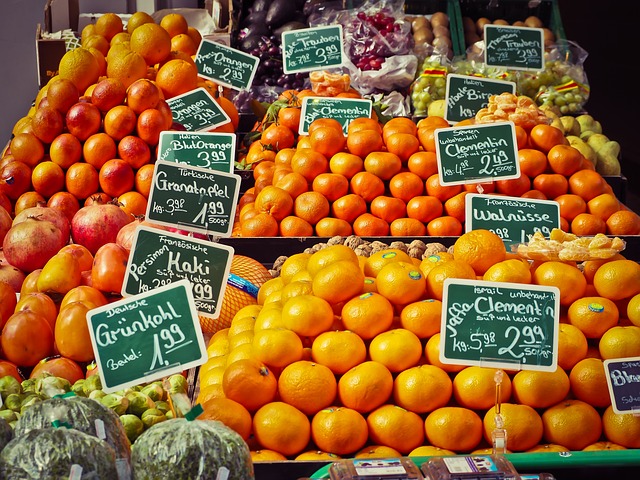yard waste management is essential for ecological health and maintaining the aesthetic appeal of residential areas. It involves the responsible disposal of organic materials like leaves, grass clippings, branches, and garden debris, which make up a significant portion of household waste. Effective management includes segregating yard waste, utilizing dedicated local facilities for recycling, and participating in composting programs to transform this waste into nutrient-rich compost or mulch. This not only saves landfill space but also enriches soils and supports sustainable ecosystems. Homeowners are encouraged to follow local regulations regarding yard waste disposal, which can vary by region and include specific guidelines for acceptance, collection, and proper disposal methods. Yard Waste Removal and Recycling services are available to manage large volumes of organic waste efficiently, contributing to soil health and environmental sustainability. These services often include the use of advanced tools like chippers and shredders that reduce waste volume and facilitate its recycling. Municipalities and private entities support these efforts through specialized programs offering curbside collection services, which process yard waste into high-quality compost, further promoting sustainable gardening practices and reducing landfill waste and methane emissions. This holistic approach to yard waste management is vital for environmental conservation, community sustainability initiatives, and maintaining healthy landscapes.
Managing yard waste effectively is a cornerstone of sustainable home maintenance. This article demystifies the process, guiding you through understanding what yard waste entails, its environmental significance, and the various disposal options available to you. Whether you’re contemplating composting your grass clippings and leaves or deciding when professional yard waste removal services are necessary, we’ll navigate local regulations and introduce innovative tools and techniques for efficient yard waste management. Additionally, we’ll explore yard waste recycling programs that not only declutter your space but also contribute to the circular economy by transforming your yard waste into valuable resources. Embrace the greener side of yard waste disposal with our comprehensive guide on ‘Residential Yard Waste Disposal Made Simple.’
- Understanding Yard Waste Composition and Importance
- Local Regulations for Yard Waste Disposal in Your Area
- DIY Yard Waste Composting Solutions
- Professional Yard Waste Removal Services: When to Call In
- Innovative Tools and Techniques for Efficient Yard Waste Management
- Yard Waste Recycling Programs: Turning Waste into Resources
Understanding Yard Waste Composition and Importance

Managing yard waste effectively is a cornerstone of maintaining a healthy environment and ensuring the aesthetic appeal of residential landscapes. Yard waste, encompassing organic materials like leaves, grass clippings, branches, and garden debris, is a significant component of overall waste generated by households. Understanding its composition is vital for efficient yard waste removal and recycling practices. Organic yard waste can be decomposed naturally, enriching the soil with nutrients, or processed through composting and mulching programs to create valuable products. These processes not only conserve landfill space but also contribute to the sustainability of ecosystems by returning beneficial organic matter back into the earth. Homeowners play a pivotal role in this cycle by segregating their yard waste and utilizing local recycling facilities that specialize in yard waste removal. By engaging with these services, residents can rest assured that their yard waste is being handled responsibly, often being transformed into compost or mulch, which supports gardening activities and reduces the need for chemical fertilizers. Comprehensive yard waste recycling programs not only benefit the environment but also foster a sense of community responsibility and environmental stewardship among residents.
Local Regulations for Yard Waste Disposal in Your Area

When managing yard waste, it’s crucial to adhere to local regulations as they can vary significantly from one area to another. Homeowners are tasked with the responsibility of understanding and complying with their jurisdiction’s specific guidelines for yard waste removal and recycling. These regulations often dictate the accepted types of yard waste, the designated collection schedule, and the methods of disposal. In many regions, organic materials such as grass clippings, leaves, branches, and twigs are collected separately from other forms of trash to facilitate composting and reduce landfill use. Compliance ensures not only environmental sustainability but also avoids potential fines or violations. Residents should consult their local waste management department’s guidelines or official website for detailed instructions on what constitutes yard waste in their area, how it should be prepared for collection, and the availability of any specialized yard waste disposal services. By staying informed and following these regulations, homeowners can contribute to a greener community while maintaining a well-kept landscape.
DIY Yard Waste Composting Solutions

Yard waste removal and recycling can be efficiently managed through DIY composting solutions, offering a sustainable approach to handling organic matter generated from garden maintenance. By setting up a compost pile or bin in your residential yard, you can transform various waste materials such as leaves, grass clippings, and kitchen scraps into nutrient-rich humus that enriches your soil. This process not only reduces the volume of waste going to landfills but also contributes to healthier plant growth and a more vibrant garden ecosystem. To initiate composting, identify a suitable location in your yard with good drainage and access to sunlight. Start by delineating an area or selecting a compost bin that suits your space and needs. Regularly add organic waste, ensuring a mix of nitrogen-rich ‘greens’ like garden trimmings and kitchen peels with carbon-rich ‘browns’ such as dried leaves and shredded paper. Aerate the pile or bin periodically to enhance oxygen flow, which is crucial for decomposer organisms that break down the waste. Monitoring moisture levels and maintaining a balanced compost will accelerate the decomposition process, leading to high-quality compost within several months. Additionally, consider adhering to local regulations regarding yard waste disposal, as some areas may offer specific guidelines or community composting programs that can further facilitate the recycling of organic matter. By engaging in DIY yard waste composting, you’re not only simplifying your waste removal process but also promoting a sustainable and eco-friendly lifestyle that benefits both your garden and the environment at large.
Professional Yard Waste Removal Services: When to Call In

When homeowners have more yard waste than they can manage or prefer to leave the task to professionals, calling in a yard waste removal service is a convenient and eco-friendly option. These specialized services are adept at handling large volumes of yard waste, including grass clippings, leaves, branches, and garden debris. They ensure that the disposal process is carried out efficiently, minimizing the impact on local landfills and promoting recycling through composting or mulching facilities. Homeowners can benefit from their expertise in identifying the best disposal methods for different types of waste, which not only enhances soil health but also supports sustainable practices within the community.
It’s crucial to consider the scale of yard waste accumulation and the frequency of removal needed to determine when professional services are necessary. Factors such as the size of your property, the types of plants or trees you have, and the seasonal changes affecting plant growth can influence how much yard waste will be generated. Professional yard waste removal and recycling services offer scheduled pickups or one-time clean-up services to meet these varying needs. Their timely intervention prevents waste from piling up and becoming a health or environmental hazard, ensuring that your outdoor spaces remain clean and well-maintained all year round.
Innovative Tools and Techniques for Efficient Yard Waste Management

Managing yard waste effectively requires a combination of innovative tools and techniques to ensure that organic materials are recycled efficiently, contributing to healthier gardens and a greener environment. Modern yard waste removal systems often incorporate composting methods that break down organic matter into nutrient-rich humus, which can then be used to enrich garden soils. Tools such as chippers and shredders significantly reduce the volume of branches, leaves, and grass clippings, making them easier to handle and transport. These devices not only facilitate yard waste recycling but also accelerate the decomposition process, turning what was once waste into valuable compost.
Furthermore, municipalities and private companies are increasingly adopting specialized recycling programs for yard waste. These programs offer curbside pickup services that collect organic materials separate from regular trash collection. This not only streamlines the disposal process for homeowners but also ensures that yard waste is processed at dedicated composting facilities where it undergoes proper decomposition and is transformed into high-quality compost. By utilizing these efficient yard waste removal and recycling methods, communities can significantly reduce landfill use and promote sustainable practices in residential areas.
Yard Waste Recycling Programs: Turning Waste into Resources

Yard waste removal and recycling programs play a pivotal role in transforming organic yard waste into valuable resources. These initiatives are designed to handle the organic debris generated from garden maintenance, such as leaves, grass clippings, branches, and twigs. By implementing these programs, communities can efficiently manage the decomposition process, reducing landfill usage and mitigating methane emissions, a potent greenhouse gas. Residents can participate in these programs by simply setting out their yard waste for collection on designated pickup days. The collected materials are then processed at local composting facilities where they are broken down into nutrient-rich humus, which can be used to enrich garden soils, thus supporting healthy plant growth and reducing the need for chemical fertilizers. This not only aids in soil health but also contributes to carbon sequestration, as the organic matter helps to store carbon in the soil. Furthermore, these recycling programs conserve water by improving soil moisture retention, thereby promoting sustainable landscaping practices. Engaging in yard waste removal and recycling is not just an environmentally sound choice; it’s a community effort that fosters biodiversity, supports local ecosystems, and contributes to the overall sustainability of our environment.
effective management of yard waste is crucial for maintaining healthy landscapes and protecting the environment. Homeowners have multiple options at their disposal, from adhering to local regulations to engaging with DIY composting initiatives. When yard waste accumulates beyond manageable levels, professional removal services specializing in Yard Waste Removal can provide assistance. Additionally, innovative tools and techniques enhance efficiency in yard waste management. Furthermore, yard waste recycling programs offer a sustainable approach, transforming organic matter into valuable resources. By understanding the options available and implementing the most suitable method for their needs, residents can ensure responsible disposal of yard waste, contributing positively to community well-being and ecological balance.
